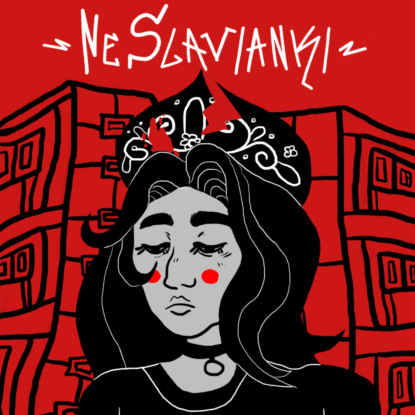Chiqarilish davomiyligi 40 daqiqa
2024 yil
16+
Podkast haqida
Welcome to NeSlavianki, a podcast about women of colour around the world. In today’s episode, host Maryam, an Arab-Russian living in Belgrade, sits down with Malika, a vibrant Uzber-Turkmen woman from New York, to discuss their unique journeys of blending cultures, identities, and experiences. From the complexities of growing up in multicultural environments to Arabic influences on Uzbek culture, Maryam and Malika explore immigrant experience, and the beauty of living between worlds. Tune in for an insightful conversation that celebrates the richness of diverse backgrounds and the beauty of finding human connection.
0:00 intro and name stuff
2:25 who is Malika
5:04 arabic influence on Uzbel culture and being “sovietified”
10:57 American education
19:16 racism in Russia
22:00 Serbia and slavery
Follow Malika @malika.burieva - blogger and content creator, educating her audience about Uzber culture. She lives in New York.
Maryam is Arab-Russian, recently moved to Belgrade, Serbia.
Serbia and slavery:
Then in 1835, when we again created a people's state, a state tailored to all citizens, we were the first in Europe to abolish slavery and feudalism with the Constitution, we wrote the Constitution that has remained a symbol of democracy to this day, which proclaimed the rights and freedoms of all citizens, the independence of the system, freedom of movement and settlement, the inviolability of the apartment and the equality of all, regardless of religion and nation, Vucevic pointed out.
Source:
https://www.srbija.gov.rs/vest/en/219219/fight-for-freedom-of-serbian-people-still-ongoing.php
In the history of legal thought, the Minister of Defence noted, Article 118 of the 1835 Sretenje Constitution, which prohibited slavery for the first time in Europe and the world, will be remembered in history.
Source: https://www.mod.gov.rs/eng/20371/ministar-vucevic-otvorio-slovacke-narodne-svecanosti20371
"When a slave sets foot in Serbia, he/she becomes free. Either brought to Serbia by someone, or fled to it by him/herself. Article 118, Serbian constitution, February 15th, 1835
Source: https://www.reddit.com/r/europe/comments/ssxejb/when_a_slave_sets_foot_in_serbia_heshe_becomes/?rdt=33419
Uzbekistan: A Cultural Melting Pot
https://www.bbc.com/storyworks/travel/a-timeless-journey/uzbekistan-a-cultural-melting-pot
Islamic legal culture in Uzbekistan
https://www.tandfonline.com/doi/full/10.1080/27706869.2023.2269511
4 Influences from the Arabian Peninsula on the Revival of Islam in Central Asia and the Caucasus
https://academic.oup.com/book/32236/chapter-abstract/268414083?redirectedFrom=fulltext
Local Traditions in Uzbekistan
https://www.advantour.com/uzbekistan/traditions
Follow NeSlavianki on social media:
https://taplink.cc/neslavianki
Host: Maryam @0at_milf
Jingle: Sasha Garahanov https://t.me/sashagarahanov
Guest: Malika @malika.burieva
Cover art: Marquis @crystalangst
